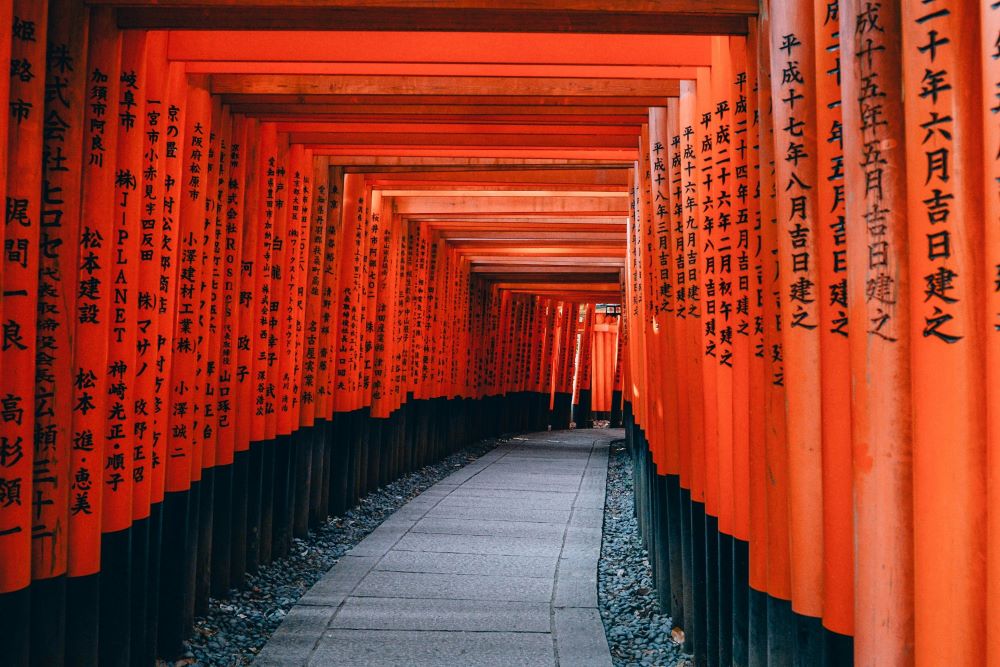Table of Contents
ToggleWe’ve listed down the different work leaves in Japan to allow business owners and foreign workers alike to navigate Japan’s leave system.
To balance the need for rest and the demands of the corporate world, Japan’s multi-faceted work leave system comes into play. In a culture renowned for its strong work ethic, understanding the nuances of taking time off is pivotal for every employee and HR professional.
In Japan, the ethos of hard work and loyalty to one’s company is deeply rooted in the societal fabric. This cultural inclination often translates into longer working hours and limited vacation time compared to many Western countries. Employees may feel a sense of obligation to prioritise their professional duties over personal needs, contributing to a culture of presenteeism.
However, there’s also a growing recognition of the importance of work-life balance, particularly among younger generations. Employers are increasingly embracing initiatives to support employees’ well-being, including flexible work arrangements and enhanced leave policies.
Types of Work Leaves in Japan
Annual Paid Leave
Think of ‘nenkyu’, or annual paid leave, as an employee’s passport to personal time. Legal entitlement to annual paid leave begins after six months of employment, culminating in a total allowance incrementing with years of service. This precious time off is typically used for anything from vacations to simple leisure activities, recharging employees for the upcoming year’s endeavours.
Sick Leave
There is no statutory sick leave, or byouketsu, in Japan, though some international firms offer it as a benefit. Employees will typically use their annual leaves when they are ill. For injuries and long-term illnesses, insured workers are entitled to an injury and sickness allowance, or shoubyouteate.
Maternity and Paternity Leave
Japan’s commitment to family stretches into the workplace through maternity and paternity leaves. Recouping from the monumental task of childbirth or bonding with a newborn is not just a cultural norm— it is codified into labour law standards, providing significant benefits for parents welcoming a new member into the family. Maternity leave is divided to two parts: prenatal and postnatal. Pregnant people are entitled to six weeks of prenatal leave (14 in the case of multiple births like twins), and eight weeks of postnatal leaves, and are paid average amount of standard remuneration of social insurance % 30 days x ⅔. Their partners, meanwhile, can be entitled to “four weeks of flexible paternity leave, on up to 67% of their salary,” depending on their company’s welfare benefit.
Childcare Leave
For parents needing ongoing support during their child’s upbringing, childcare leave permits a longer-term absence from work. Parents are entitled to 52 weeks of childcare leave before a child’s birthday (or when they turn 14 to 24 months old in certain cases). They are paid 67% of their regular salary for up to 180 days (capped approximately at JPY 300,000) and 50% at 181 days and above (capped approximately at JPY 230,000).
Family Care Leave
Extended care for family members in critical health and needs nursing care is facilitated through family care leave. Employees can request up to three times a total of 93 days leave per family member. This leave lets employees prioritise the well-being of their kin without forgoing their income or job security. However, employers can deem employees ineligible for the leave, such as those who haven’t been with the firm for a year or those whose contracts will terminate within six months after the scheduled leave.
Leave of Absence to Nurse a Child or to Take Care of Family
If an employee has a preschool-aged child who falls ill or gets injured, they are entitled to take up to five days of leave per year to care for their child. If the employee has two or more preschool-aged children, this entitlement extends to up to 10 days per year. This addresses the needs of children, ensuring their parents’ full-time presence and care without the worry of work-related obligations.
Similarly, if an employee needs to care for a family member who requires nursing care, they can request up to five days of leave per year for this purpose, or up to 10 days per year if they have two or more family members in need of care. It’s worth noting that this leave can be taken in hourly increments for flexibility.
It’s important to note that there are no legal provisions for paid salary for the caregiver leave, leaving pay up to the discretion of the company.

Comparison with Global Standards
Japanese work leaves stand out against global standards, showcasing the national value for health, welfare, and the future.
Legal Framework and Regulations
Navigating the labyrinth of Japan’s labour laws can be quite complex, but it ensures that work leave policies are respected and that both employers and employees are well-informed about their rights and responsibilities.
Impacts on Work Culture and Productivity
The breadth and depth of Japan’s work leave system not only protects employee well-being but also influences workplace culture and productivity in a profoundly positive manner, when managed effectively.
Conclusion
Understanding and optimising the use of work leave are crucial for establishing a harmonious work environment, fostering loyal and motivated employees. As Japan’s leaves continue to evolve, it’s an encouraging sign that the human element is just as important as productivity in the corporate landscape.
As an employer operating in Japan, ensuring compliance with labour laws and supporting employee well-being are paramount. However, managing work leaves and navigating complex regulations can be challenging. That’s where our employer of record services comes in.
Our comprehensive solutions streamline HR processes, including payroll, benefits administration, and compliance management. With our expertise and local knowledge, we can help you navigate the intricacies of work leaves in Japan while ensuring legal compliance and fostering a supportive work environment.
Contact us today to learn more about how our employer of record services can benefit your business in Japan.







